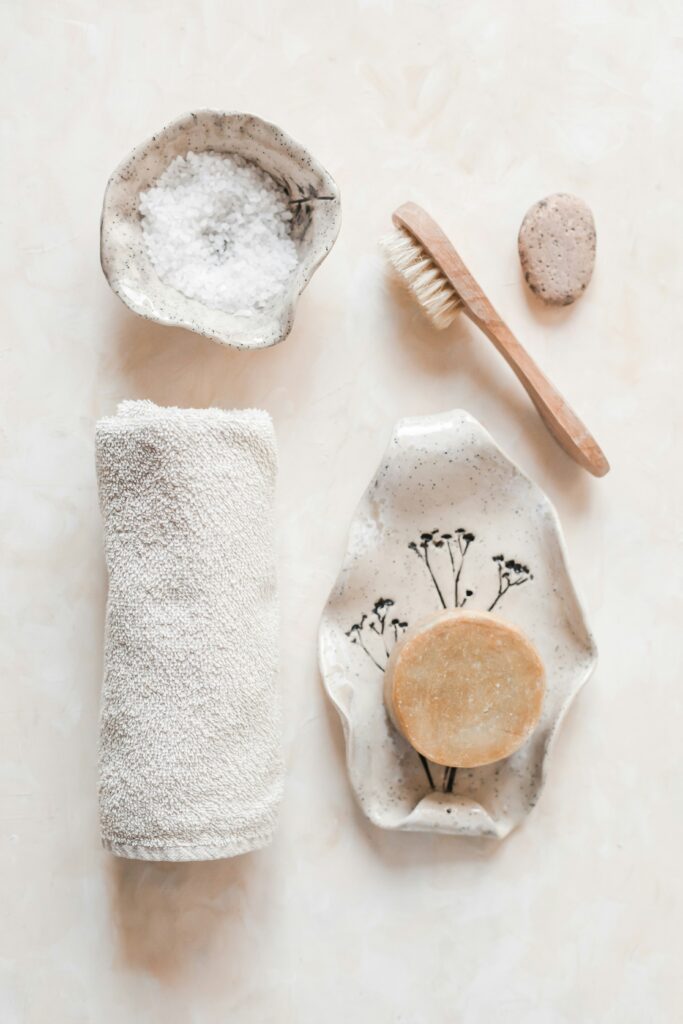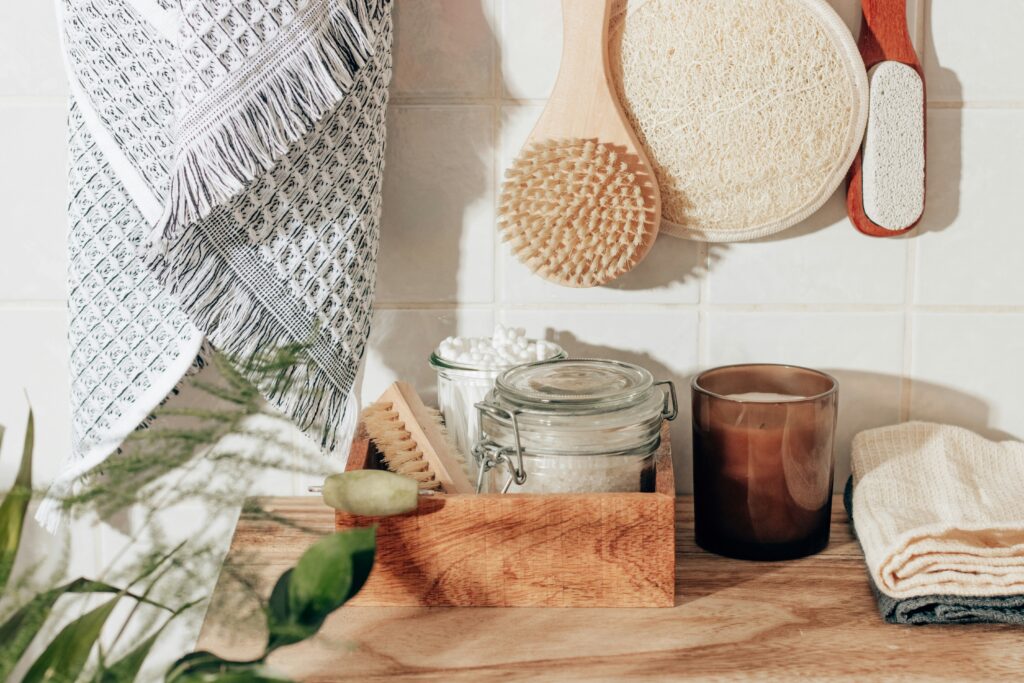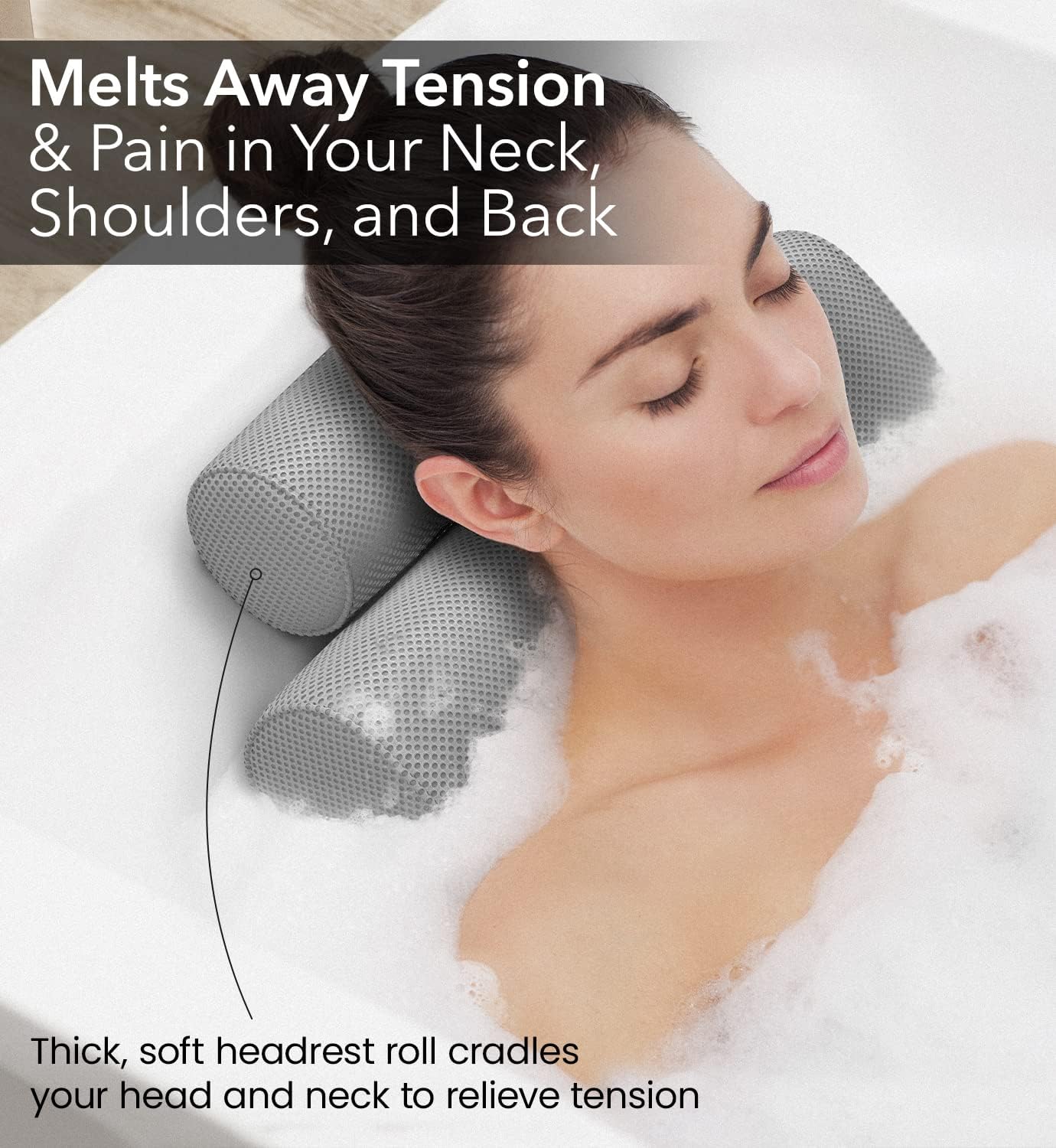Epsom Salt Baths for Muscle Recovery

Whether you’ve just finished an intense workout or you are simply feeling the aches and stiffness of a long day, the idea of sinking into a warm bath might already seem pretty appealing. But imagine if that bath could also be the key to easing those sore muscles and speeding up your recovery. Welcome to the benefits of Epsom salt baths—a simple, time-tested remedy that just might become your new favorite way to recharge and recover.
In this article, we’re going to explore everything you need to know about using Epsom salt baths for muscle recovery. We’ll dive into why these baths are so effective, how to use them properly, and which products might be worth trying. So get ready, because after reading this, you’ll be ready to enjoy the ultimate relaxing and rejuvenating bath experience.
What is Epsom Salt, and How Does it Work?

Before you fill your tub, it helps to understand what makes Epsom salt special. Epsom salt isn’t like your typical table salt. It’s actually magnesium sulfate, a naturally occurring mineral compound made of magnesium, sulfur, and oxygen. When dissolved in warm water, Epsom salt breaks down into these components, which can then be absorbed through your skin.
Magnesium, in particular, plays a significant role in muscle health. It’s crucial for muscle function, energy production, and the maintenance of healthy muscle contractions. When your magnesium levels are low, you may experience more muscle cramping, fatigue, and discomfort. An Epsom salt bath aims to replenish magnesium levels in your body, reducing soreness and speeding up muscle recovery.
Why Do Epsom Salt Baths Help with Muscle Recovery?
You’ve probably experienced the feeling—those tight, aching muscles after a solid workout. This soreness is largely due to the tiny micro-tears in your muscles as well as the build-up of lactic acid. The good news is that Epsom salt baths can help alleviate both of these issues.
- Reduction of Muscle Tension: Epsom salt contains magnesium, which has been shown to help muscles relax. When you indulge in a muscle recovery soak in an Epsom salt bath, it’s believed that the magnesium enters your body through your skin, helping to relieve muscle tightness, tension, and overall soreness. This makes it especially beneficial after an intense workout.
- Decrease Inflammation: Inflammation is one of the major reasons muscles feel sore after exercise. Magnesium in Epsom salt has anti-inflammatory properties, which can help to reduce the inflammation in your muscles and joints, promoting a faster recovery.
- Stress Relief: It’s not just physical benefits—Epsom salt baths can also help ease mental stress. After a grueling gym session, reducing your stress levels helps to lower cortisol (a stress hormone), creating the ideal environment for your muscles to relax and heal.
How to Prepare the Perfect Epsom Salt Bath for Muscle Recovery
The great thing about an Epsom salt bath is that it’s easy to set up. Here’s how to do it right to get the most benefit for your muscles:

- Fill Your Tub with Warm Water: You want the water to be warm—not too hot that it becomes uncomfortable, but not lukewarm either. A temperature between 92-100°F (33-38°C) is usually ideal for relaxation and effective absorption of magnesium.
- Add Epsom Salt: Add about 2 cups of Epsom salt for a standard-sized bathtub. If you have a larger tub, add a bit more. Stir the water so the salt dissolves evenly.
- Soak for 15-20 Minutes: Spend at least 15 minutes in the bath to give your body time to absorb the magnesium and experience the benefits. Don’t rush this—this time is for you to truly relax.
- Hydrate Afterwards: It’s important to drink water after an Epsom salt bath since the warmth of the water can dehydrate you a bit. Replenishing with water helps maintain a balanced recovery.
Products to Try for the Best Epsom Salt Bath Experience
If you’re new to Epsom salt muscle soaks, it’s worth mentioning that there are several high-quality products available that can really elevate your bathing experience. You can easily find many of these, and they come highly recommended by users who swear by their muscle-soothing benefits.

Dr Teal’s Pure Epsom Salt Soaking Solution: This is probably the most well-known brand when it comes to Epsom salts. Dr Teal’s comes in different varieties, each infused with essential oils like lavender, eucalyptus, or chamomile to promote relaxation. With thousands of positive reviews, this product is a favorite for muscle recovery and relaxation alike.
Epsoak Epsom Salt by San Francisco Salt Company: Another highly-rated product, Epsoak Epsom Salt is made from high-quality magnesium sulfate crystals. It’s pure and unscented, making it perfect if you have sensitive skin or prefer to add your own essential oils.


Amazon Basics Epsom Salt Lavender Scent: If you enjoy a touch of aromatherapy, this lavender-scented Epsom salt from Solimo brand is a popular choice. Lavender has calming properties that can complement the soothing effects of the salt itself, making it perfect for a post-workout evening bath.
Tips to Enhance Your Muscle Recovery Routine
Adding an Epsom salt bath to your post-workout regimen can make a significant difference, but there are additional steps you can take to help with muscle recovery and overall wellness.
- Stay Hydrated: Proper hydration is vital for muscle recovery. Water helps flush out toxins and metabolic by-products that build up during a workout, including lactic acid.
- Stretching: Taking time to stretch your muscles before and after a workout can prevent soreness. Stretching promotes flexibility, helps your muscles relax, and decreases the risk of injury.
- Protein Intake: Post-workout protein is essential for muscle repair and growth. Try to eat a protein-rich meal or shake within 30 minutes of working out to support recovery.
- Foam Rolling: Foam rolling, also known as self-myofascial release, can help relieve muscle tightness and improve blood flow. Combining foam rolling with an Epsom salt bath can provide even greater relief from soreness.
- Magnesium Supplements: If you’re finding that you still have muscle cramps or soreness, even after taking Epsom salt baths, it might be worth considering a magnesium supplement. Consult with a healthcare professional before adding supplements, especially if you have any health conditions.
The Benefits Go Beyond Just Muscle Recovery
While Epsom salt baths are popular for their muscle-relieving benefits, they offer much more than that. If you’ve ever had trouble winding down before bed, soaking in an Epsom salt bath can help prepare you for a deeper and more restful sleep. The magnesium helps promote the production of melatonin, the hormone that regulates sleep.
Moreover, people dealing with arthritis or chronic pain may also find Epsom salt baths helpful. Magnesium’s anti-inflammatory properties can provide some much-needed relief for aching joints and muscles.
Epsom salt baths may also be beneficial for your skin. The salt acts as a gentle exfoliant, and the magnesium can help reduce inflammation, which is especially helpful if you suffer from skin conditions like eczema or psoriasis. So, while your main goal might be muscle recovery, you’ll also be doing your skin a favor.
Addressing Common Concerns About Epsom Salt Baths
You might be wondering—is it safe to take Epsom salt baths often? For most people, the answer is yes. Soaking in Epsom salt a couple of times a week is generally safe and effective for muscle recovery. However, if you have any underlying health conditions, especially kidney issues, it’s always best to talk to your doctor before making it a routine.
Another question is whether Epsom salt baths actually increase your magnesium levels. While the science is still somewhat divided on how much magnesium is absorbed through the skin, many people report feeling noticeably better and experiencing reduced muscle soreness after an Epsom salt bath. Whether it’s the magnesium itself, the warmth of the bath, or simply the relaxation that comes with taking time for yourself, the combination seems to work wonders for most people.
Creating a Relaxing Environment for Your Bath
If you’re taking the time to soak in an Epsom salt bath, why not make it an experience? Creating a calming, spa-like atmosphere will make it all the more rewarding for both your mind and your muscles.

Add Essential Oils: While Epsom salt itself is great, adding a few drops of essential oils like lavender, eucalyptus, or peppermint can elevate the experience. These oils can help enhance relaxation and even provide additional anti-inflammatory benefits. The Kneipp Bath Time 6-Piece Bath Oil Set is a great way to experiment to find which scent works for best for you.

Light Some Candles: Candles are a great way to set the mood and help you relax. Soft, flickering light can create a comforting atmosphere and help reduce stress.
Put On Some Music or a Meditation Track: Listening to calming music or a guided meditation can help you unwind, making it easier to let go of stress and fully relax your muscles.

Consider a Bath Pillow: If you’re going to be soaking for 20 minutes, comfort is key. A bath pillow can make your experience more comfortable, allowing you to truly relax without straining your neck. The Everlasting Comfort Luxury Bath Pillow is one option that offers a more enjoyable bath time soak.
Should You Try an Epsom Salt Bath for Muscle Recovery?
If you’re looking for a simple, natural way to support muscle recovery, Epsom salt baths are definitely worth a try. They are an affordable and accessible remedy that provides a number of benefits, from reducing muscle soreness to promoting relaxation and even improving sleep. With products like Dr Teal’s or Epsoak easily available, incorporating this into your routine couldn’t be easier.
Whether you’re an athlete, a casual gym-goer, or just someone dealing with everyday muscle aches, Epsom salt baths offer a soothing and therapeutic solution. So, the next time you’re feeling sore and tired, why not run a warm bath, add some Epsom salt, and let your muscles soak up the goodness? Your body will thank you for it.
Ready to Relax and Rejuvenate?
It’s time to take control of your muscle recovery in the most relaxing way possible. Grab yourself a bag of highly-rated Epsom salt, and get ready to soak your way to feeling refreshed and recharged.
Your sore muscles are begging for it, and your mind could probably use the break too. Happy soaking!
For additional post-workout information, visit Recovery Essentials Hub.
This post contains affiliate links. If you click on one and make a purchase, I may earn a commission at no additional cost to you. Rest assured, I only recommend products or services I believe will provide value to my readers 🙂


